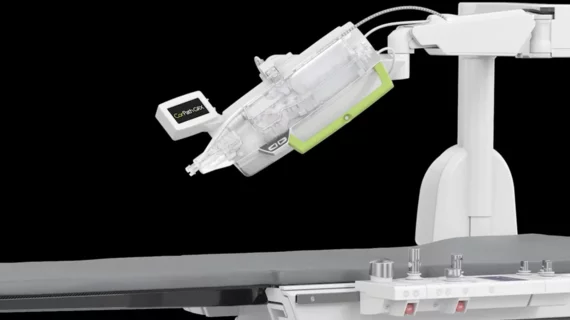Corindus, acquired back in 2019, is now Siemens Healthineers Endovascular Robotics
Siemens Healthineers has announced Corindus, the vascular robotics company it acquired back in 2019, has been renamed Siemens Healthineers Endovascular Robotics. It is now part of the advanced therapies division within Siemens Healthineers.
The newly named entity will primarily focus on the design and development of minimally invasive, image-guided robotic devices to be used during endovascular procedures. Its most well-known product within the industry is the CorPath GRX System, a second-generation robotics system used by interventional cardiologists during percutaneous coronary intervention (PCI) procedures. According to Siemens Healthineers Endovascular Robotics, the device protects operators from unnecessary radiation exposure, improves consistency across the cath lab and reduces the risk of complications and rehospitalizations.
“The completion of our brand evolution marks the final step to becoming a united company and we remain focused on pioneering breakthroughs for everyone, everywhere,” Wayne Markowitz, worldwide executive president of Siemens Healthineers and the company’s head of endovascular robotics, said in a prepared statement sent to the media. “Our flagship product, the CorPath GRX System, is designed to support endovascular interventions, and we look forward to working with our customers as Siemens Healthineers Endovascular Robotics while fueling our vision to connect more patients to advanced care.”
The company described this announcement as “the final step of the company integration process that commenced in 2019 with the acquisition of Corindus.” As of Friday, Dec. 16, the Corindus website and all social media channels are scheduled to officially reflect the new name of Siemens Healthineers Endovascular Robotics.

